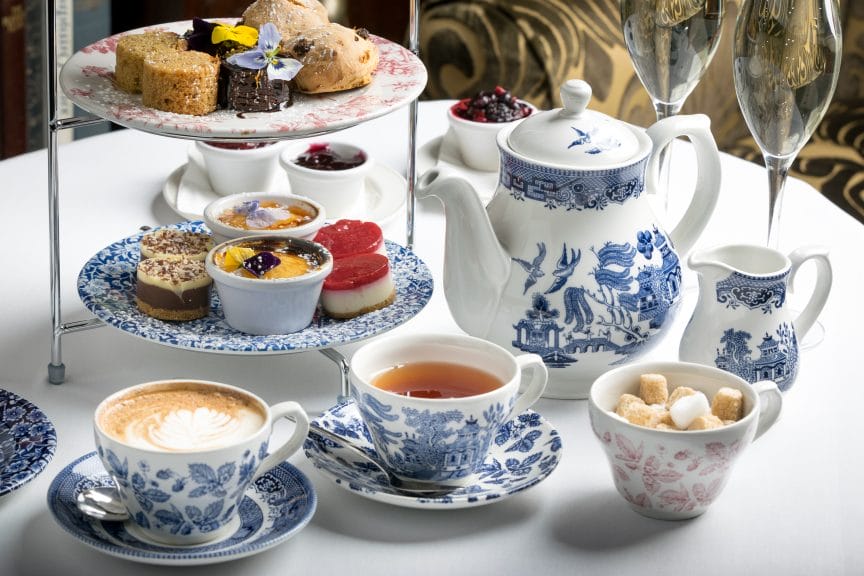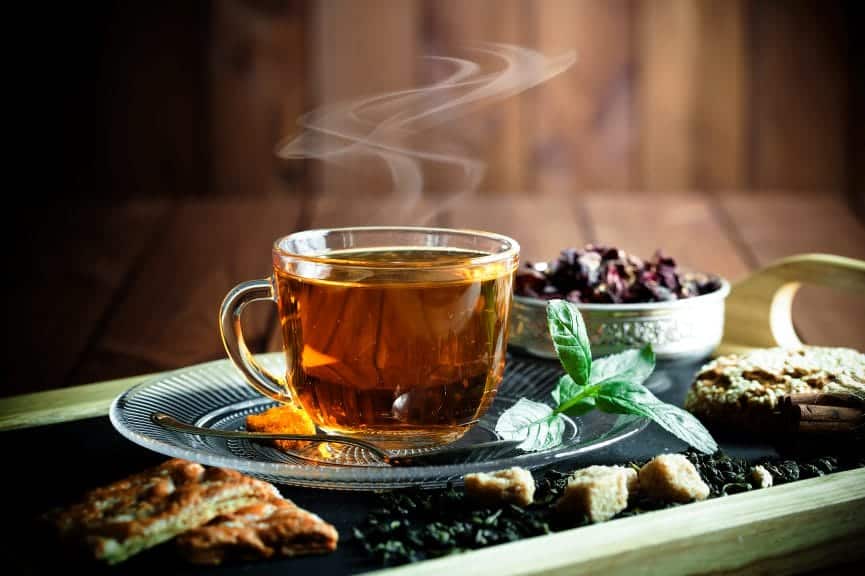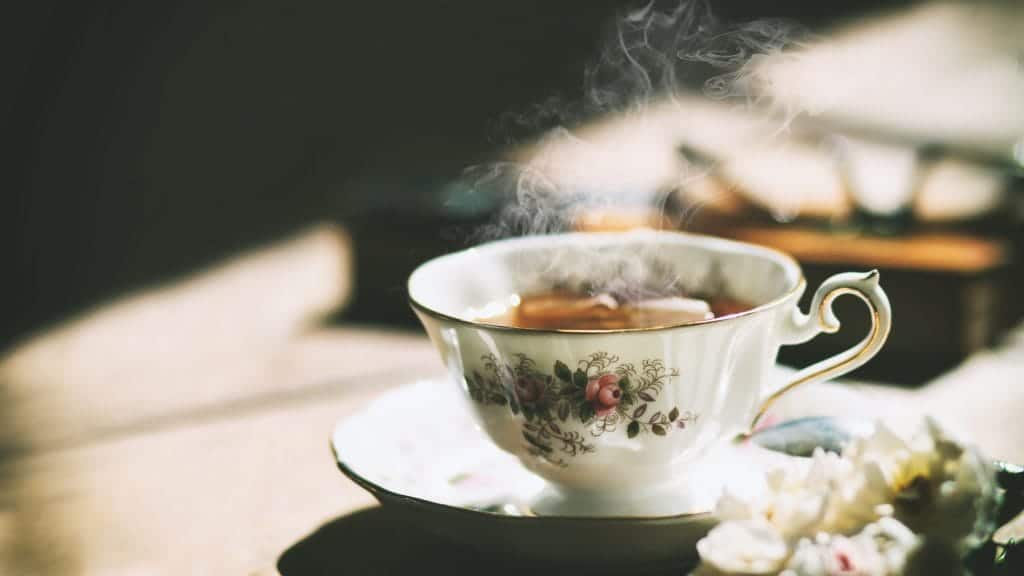As the new year starts, we have controversy around retirement age, the upcoming elections around the world, and now the right way to make tea, which even involves the American Embassy. You will never guess what started all of this. It can get hotter than the water you boil with.
Tea, for most, is either an herbal remedy to help you feel better when under the weather or it is a part of one’s lifestyle. The drink’s history is not only longer than you think, but it is also has been through extreme changes. Such reform has led to the perception of the drink to differ in various cultures around the world. These diverse perceptions can often be a great opportunity to introduce and exchange beneficial ideas. However, it can be an opportunity for a clash of beliefs.
With mass media, such as television and film, international best-selling publications, and social media, one’s perspective is not only easier to share but more accessible to comment on. Social media has gone absolutely wild for many complex and frequent topics. However, the latest one has been called “strange” or “silly”. Tea ingredients have been one of the latest debates on social media. Given the fact that today’s world, for most humans, is nothing like it was five years ago; this raises questions. One being: is the tea controversy a simple joke, or does it indicate a deeper analysis of what our global society is suffering from as an entirety?
Modern tea origins
There is a long-time stereotype towards British people because of the way they value tea. Say something offensive about British Tea, some might consider those to be fighting words. Conveniently, the mass communication and trade of today allows people to talk to and ship items to others with a tap of a finger. In some parts of the world, the drink maintains cultural practices on food. This makes you probably wonder where the national drink comes from.
Tea originates from China, which then spread all over Europe. One of the most notable events in the history of British Tea belongs to a Portuguese princess. According to the UK Tea & Infusions Association, in 1662, Princess Catherine of Braganza, while traveling away from Portugal to marry her future husband, King Charles II, brought traditional Chinese tea with her.
During her time in England, she popularized the drink and its association as a breakfast drink. She also popularized the experience of the drink by including China cups and adding pastries. Tea had officially been introduced to England and was a popular drink amongst the wealthy and not just for medicinal purposes.

There are limited historical records on tea preparation by Princess Catherine or the British nobility at the time of her arrival. But what we do know is that sugar did not become a part of the drink until between 1685 and the early 18th century.
According to Englisch Hilfen “in the 17th and 18th centuries the China cups tea was served in were so delicate they would crack from the heat…. Milk was added to cool the liquid and stop the cups from cracking. This is why, even today, many English people add milk to their cups BEFORE adding the tea!”
Tea became more accessible to working-class Brits in the 19th century as sugar became cheaper.
A revolutionary drink
With the majority of East Coast Americans having roots as British colonies, it is no surprise that pre-revolutionary Americans were just as crazy about tea as their previous colonizers were.
The British taxation of tea in the early 1770s brought about the American Revolution, as many of you know. This caused quite a backlash from the Americans in the 13 colonies. From there, the beverage was smuggled from places like Holland prior to the Boston Tea Party. On December 16, 1773, thousands of angry Bostonians dumped chests of British East India Company tea into the harbor. It is rumored that the tea was dosed in salt before being thrown into the harbor.
Since the American Revolution, Americans had to improvise when finding a new source of tea. Some took to imports from Holland, and others also made their own using whatever nearby that can grow effectively. “This can be roots from the river, flowers from a garden, fruits and berries from orchards, edible plants from the wayside and plenty of herbs”- (Apothecary Mary/Youtube)

Some also regard the drink as colonial or “liberty tea”. Because of this, Americans began to experiment with different elements, causing the flavor to be weaker compared to Britain’s. This experimentation eventually caused the now-popular iced sweet and unsweet tea that is popular in Southern America today.
Now, like most countries after the Industrial Revolution, technology made brewing tea a bit easier to later introducing tea bags. In addition, there is a rise of immigrants in the UK and US, which led to other cultural influences. For the most part, Americans make hot tea with sugar and sometimes lemon and honey. Comparatively, they do not put milk in it like the British.
So, what’s the big deal?
On January 24th, American scientist and chemist Michelle Francl released her book, Steeped: The Chemistry of Tea. The book explores the chemistry behind different styles of tea. But what caused not only outrage was her recommendation to add salt for “the perfect brew”. Many British people felt outraged and took to social media to showcase it. The outrage was so intense on social media that the U.S. Embassy in London had to get involved. The embassy released a statement shortly after the book’s release that states the following:
“Tea is the elixir of camaraderie, a sacred bond that unites our nations. We cannot stand idly by as such an outrageous proposal threatens the very foundation of our Special Relationship,” the embassy said. “…the unthinkable notion of adding salt to Britain’s national drink is not official United States policy. And never will be.“
London U.S Embassy
But why salt?
All jokes, or should I say all outrage outside, I want to ask why salt? Professor Francl explains in a statement to the BBC that “salt acts as a blocker to the receptor which makes tea taste bitter, especially when it has been stewed”. The idea of adding salt is not entirely a new concept. The Chinese were reported to add salt in their tea dating back to the 8th century. But how beneficial is it to your health?
Despite it decreasing the bitterness in tea, a nutritionist does not encourage adding salt. In an interview with Eglė Krištopaitytė, nutritionist Jo Travers, BSc, R.D., says “research does not suggest the health benefits of adding salt to tea. As the amount suggested by Francl is very small, the health risks associated with a tiny pinch are low”. Adding too much salt or drinking it too often can lead to health issues such as high blood pressure, diabetes, and more.
What’s next for tea?
For many 2024 compared to ten or even five years ago, feels like you are on a completely different planet. You are trying to figure out how did this happen and how so fast. Times have been challenging, uncertain, and evolving. These times can convey what we value in pop culture depending on what is of most concern. A debate over tea ingredients is certainly not going to change the planet. But it may be a cry for nostalgia.
Many of you can remember some of the silliest things that went viral years ago such as the gold and blue dress debate. This tea debate may be just a desire to re-live those times were polarization and the mass documentation of mental illness were at an arguably all-time high. Many of us reading this are in their 20s or early 30s. We are reminiscing about our childhood and what we saw as important as a way to escape the frustration we have in our current reality where stability is uncertain for many. It may be tea, but it is also a natural endeavor that several feel and should be included more.
Honestly in modern times like most tastes, it unconsciously comes from the culture you come from. However, it doesn’t necessarily mean it’s right or wrong, since people have their own preferences. You can add salt or milk, or whatever floats your boat. Mass media today allows us to experience different recipes and styles regardless of culture or nationality. Although, it is also important to note the cultural origins of anything before claiming a new style. It’s safe to say, tea in the 21st century is truly in the eye of the beholder or truly of one’s taste.














